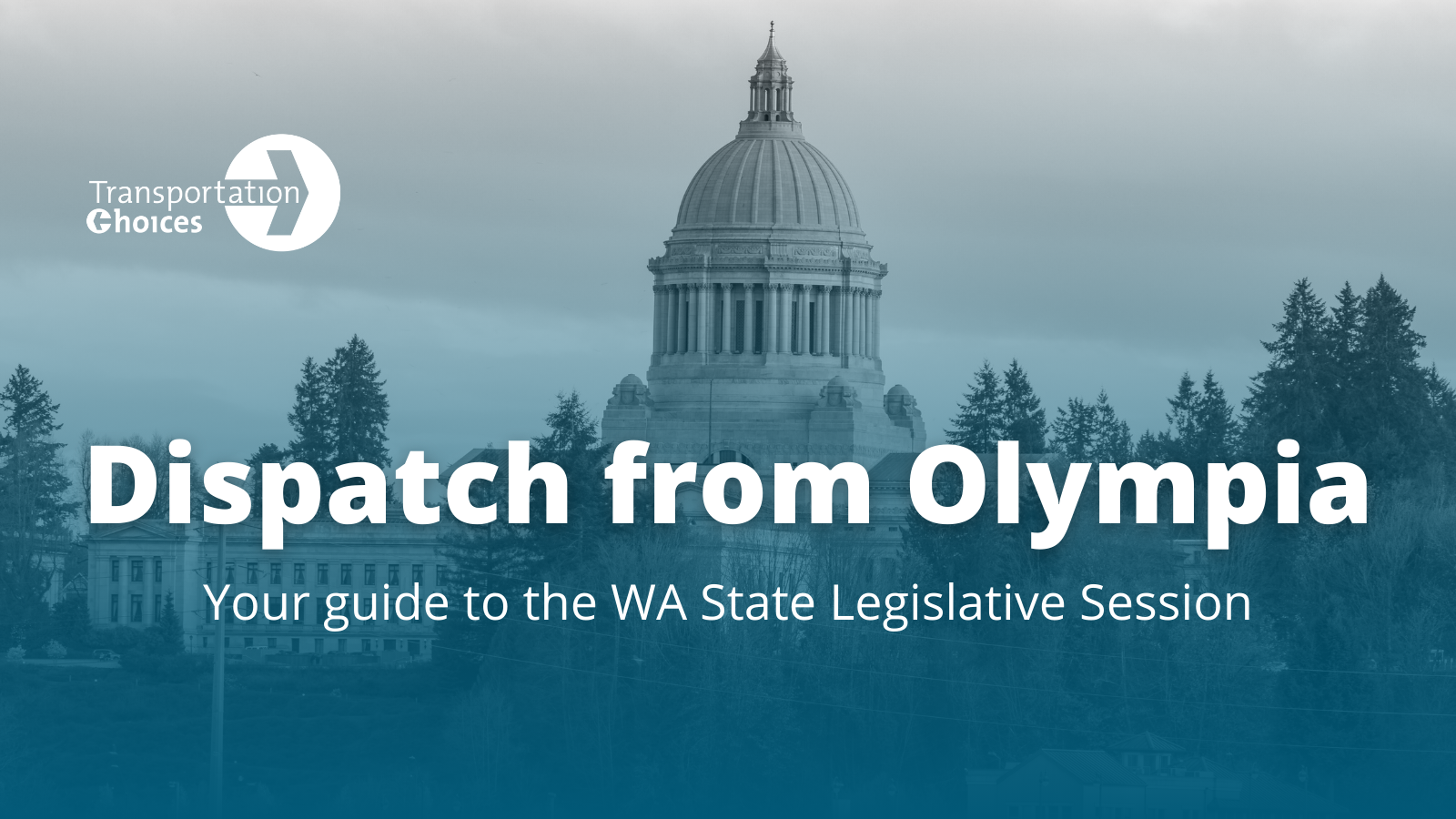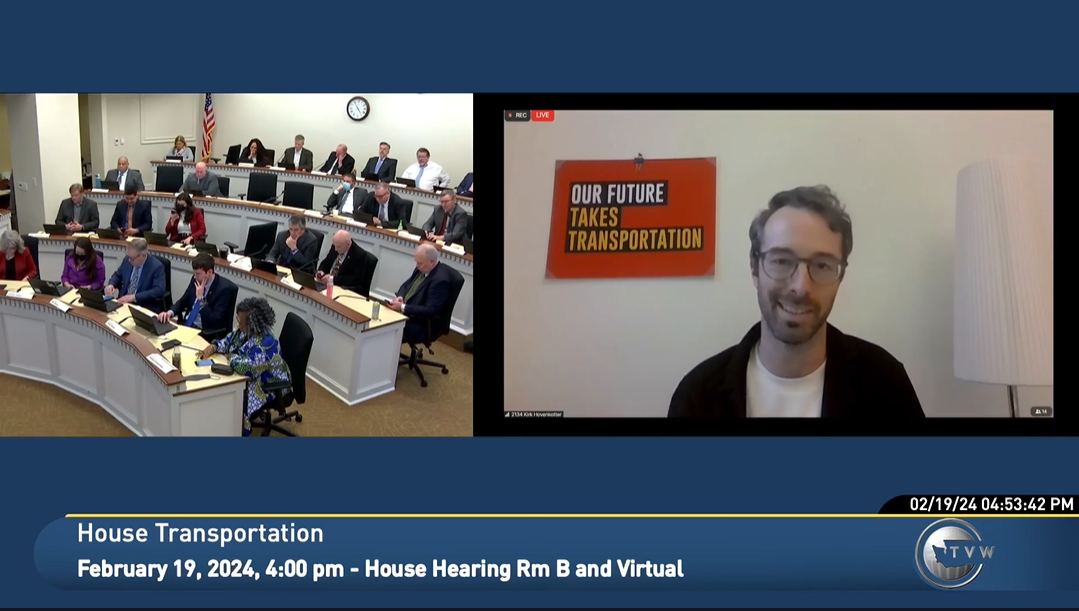
Dear friends,
Last week, both the House and Senate dropped their versions of a supplemental transportation budget. Both would authorize additional spending from Climate Commitment Act funds: $340-$350 million in the House budget and $324 million in the Senate budget. And both contain a lot of things we like (see more details below). Transportation Choices Coalition’s Executive Director, Kirk Hovenkotter, testified on both budgets to support new and increased investments in safe, equitable, and sustainable transportation.

Kirk Hovenkotter testifies before the House Transportation Committee.
Legislators will continue to conference over the next few days to iron out the differences between the proposed budgets. One of the biggest differences is how they’re addressing budget shortfalls for big highway projects. The House has proposed slowing down the SR-520 project and completing it in phases. The Senate has proposed funding the SR-520 project while delaying other projects.
One concern we have about the Senate budget is the allocation of $50 million from Climate Commitment Act revenue to fund Complete Streets related to WSDOT’s maintenance and preservation projects. We fully support funding for Complete Streets projects, which build safe pedestrian and bike infrastructure into roadways. However, we would prefer the funding for these improvements come from the gas tax, which can only be used to fund roadway projects, rather than the Climate Commitment Act, a key funding source for new multimodal transportation investments.
Of course, both of these budgets hinge on preserving the Climate Commitment Act. While hundreds of millions of dollars may be approved to meet our state’s critical transportation needs, the funds won’t be accessible until January 1, 2025. That’s because a third of our state’s transportation budget depends on voters saying NO to Initiative 2117 (which would repeal the Climate Commitment Act) in November. The NO on 2117 campaign is hiring an experienced and motivated campaign manager – if you know of a good fit, please share this job listing.
Read on to learn more about what’s in the transportation budgets, and check out our Bill Tracker to see the status of other bills we’re keeping an eye on this Session.
Keep moving,
Transportation Choices
What’s in the House Supplemental Transportation Budget
Some things we like:
+ $45M for Zero-Emission Transit Grants
+ $49M for additional active transportation projects
+ $5M for the Sandy Williams Connecting Communities Program
$900K for the next phase of WSDOT’s Frequent Transit Service Study
$250K to further study a Road Usage Charge
$100K for a Rideshare Voucher Pilot for nonprofits to offer rideshare vouchers to low-income people or people with disabilities
+ $100K ($500K in total) for a de-escalation pilot for King County Metro public safety
Check out the full budget here.
What’s in the Senate Supplemental Transportation Budget
Some things we like:
$2M to expand transit coordination grants for agencies serving ferry terminals
$1.2M to continue WSDOT’s Frequent Transit Service Study
$275K to support free youth fares in county ferry systems
Funding for studies on:
- Transit-oriented development
- Workforce shortages in civil engineering
- New high-capacity transportation options around the state
- The economic impact of the ferry system.
Cause for concern:
Using $50 million from the Climate Commitment Act to fund Complete Streets related to WSDOT’s maintenance and preservation projects, rather than using revenue from the gas tax.




